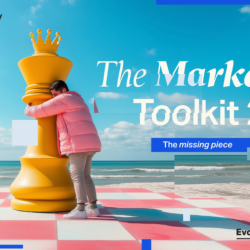Having an idol can be an important part of entrepreneurship. They fill a specific purpose: to give us someone we can look up to with respect and hold in high regard. When navigating the many challenges around starting a business, they enable us to say, ‘what would they do in that situation?‘
However, it’s obvious how this can become a problem too. Even the most inspirational leaders make mistakes. We are all fallible, and that’s the nature of being human. Even Sir Richard Branson, likely one of the most touted business idols of all time, has been quoted as stipulating: ‘You shouldn’t blindly accept a leader’s advice. You’ve got to question leaders on occasion.‘
Leaders don’t have all the answers
When seeing a business leader in their element, it’s easy to believe they know it all. It doesn’t help that we have been made to believe that admitting you don’t know the answer may be a sign of weakness. On the contrary, it takes strength to admit you’re unsure. Failure is part of growth, and every team experiences it sometimes. As a leader, it’s essential to let your team see that you experience your share of failure, too—but you fail fast, learn from it, adjust, and do better next time. Teams that embrace failure as a part of growth take more risks and reap bigger rewards.
Don’t compare yourself to others
Of course, the problem with our idols is that we don’t see that failure. In other words, we don’t see the journey, just the success story. And it’s these stories of explosive, overnight popularity that make entrepreneurs think this is a typical business trajectory. The truth is that this really is just a story. Most businesses face hardships before they become the success story that we all ‘idolise.’
Take the London-based ice cream mochi dessert manufacturer Little Moons; after going viral on TikTok, people believed it had been an ‘overnight success’. And many articles covering the company contain messaging to this effect.
However, during a recent talk I attended with its founder, Vivien Wong, she explained how far away that is from the truth. In reality, her team has been plugging away at the company for over ten years. It was a long path to ‘overnight success.’ It’s impossible to compare your growth to that of another entrepreneur. You don’t know what their goals were, how they started their journey or the path they took to get there.
Be your own business idol
Making personal choices, goals, strategies, and decisions is part of the entrepreneurial journey. By making this about competition and comparisons against your idols, you’ll lose sight of your ultimate goal. Have idols you look up to, but know when not to follow them. Others aren’t necessarily smarter than you, they just do it (build a business) consistently. This understanding begins with being authentic to yourself and trusting your instincts. After all, creative solutions come from companies thinking contextually about their own problems. Without examining the nuances behind another business’s success, adopting a trend or replicating its journey will not yield the same results.

A business or its leader’s unique decisions and distinctive results make it special and stand out from the crowd. No one can be you, and that’s a strength. Moreover, why would you want to copy someone else’s business journey? Success isn’t just monetary. Getting bogged down in the destination is a sure-fire way to miss the excitement and satisfaction of creating something incredible — and uniquely you. Don’t focus on your idols. Focus on being confident in yourself and assured in your ability to grow.
It only takes one person to believe in you — why not let that be you? Starting a business is the greatest personal development journey you can go on — embrace it and enjoy the ride.
Featured image: Asiama Junior / Pexels

































